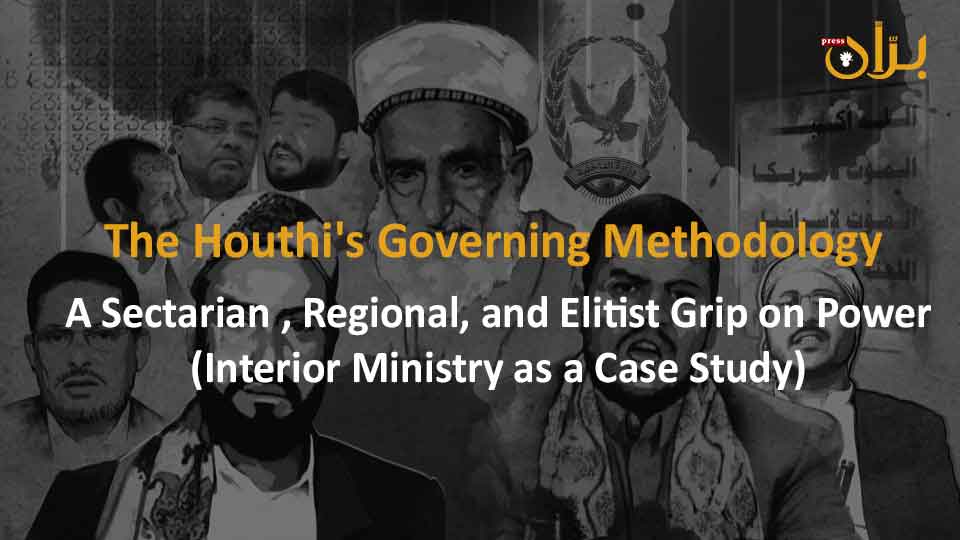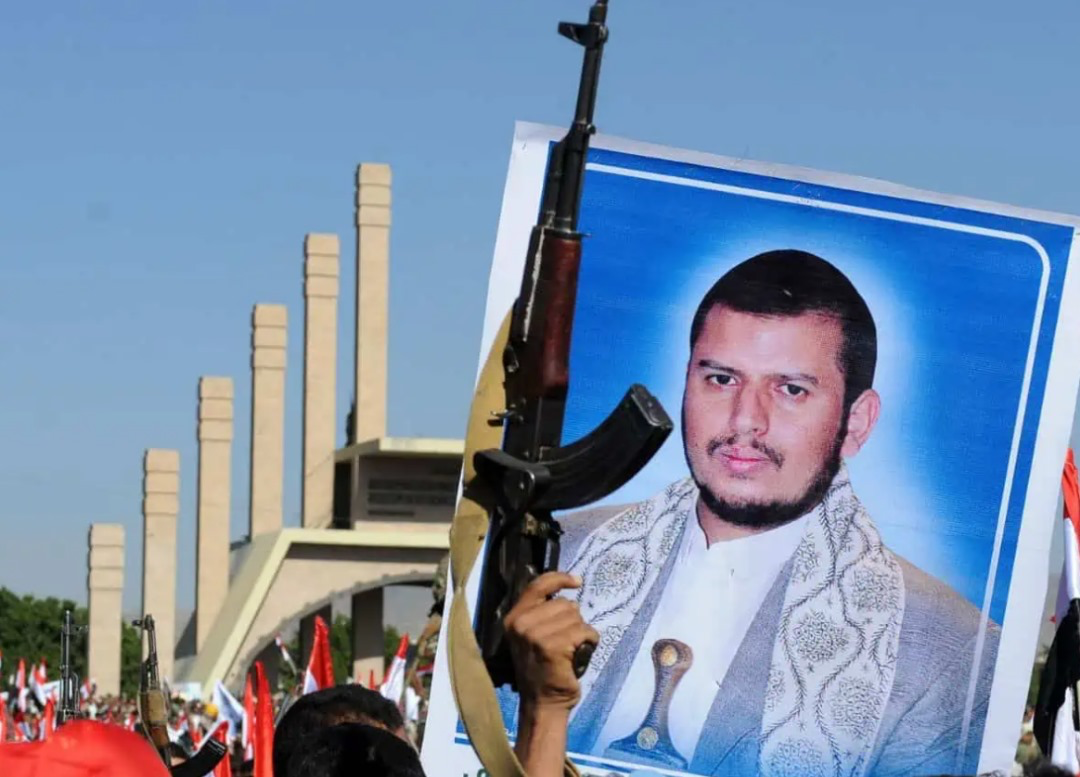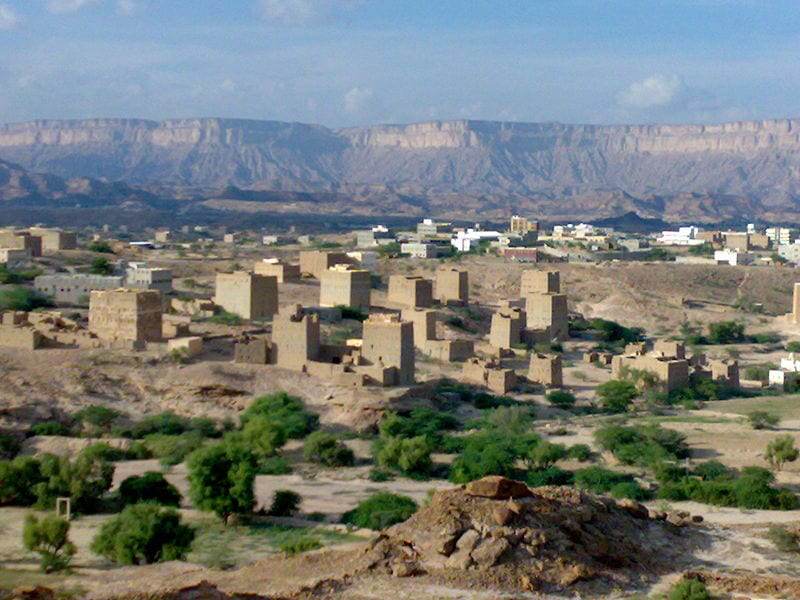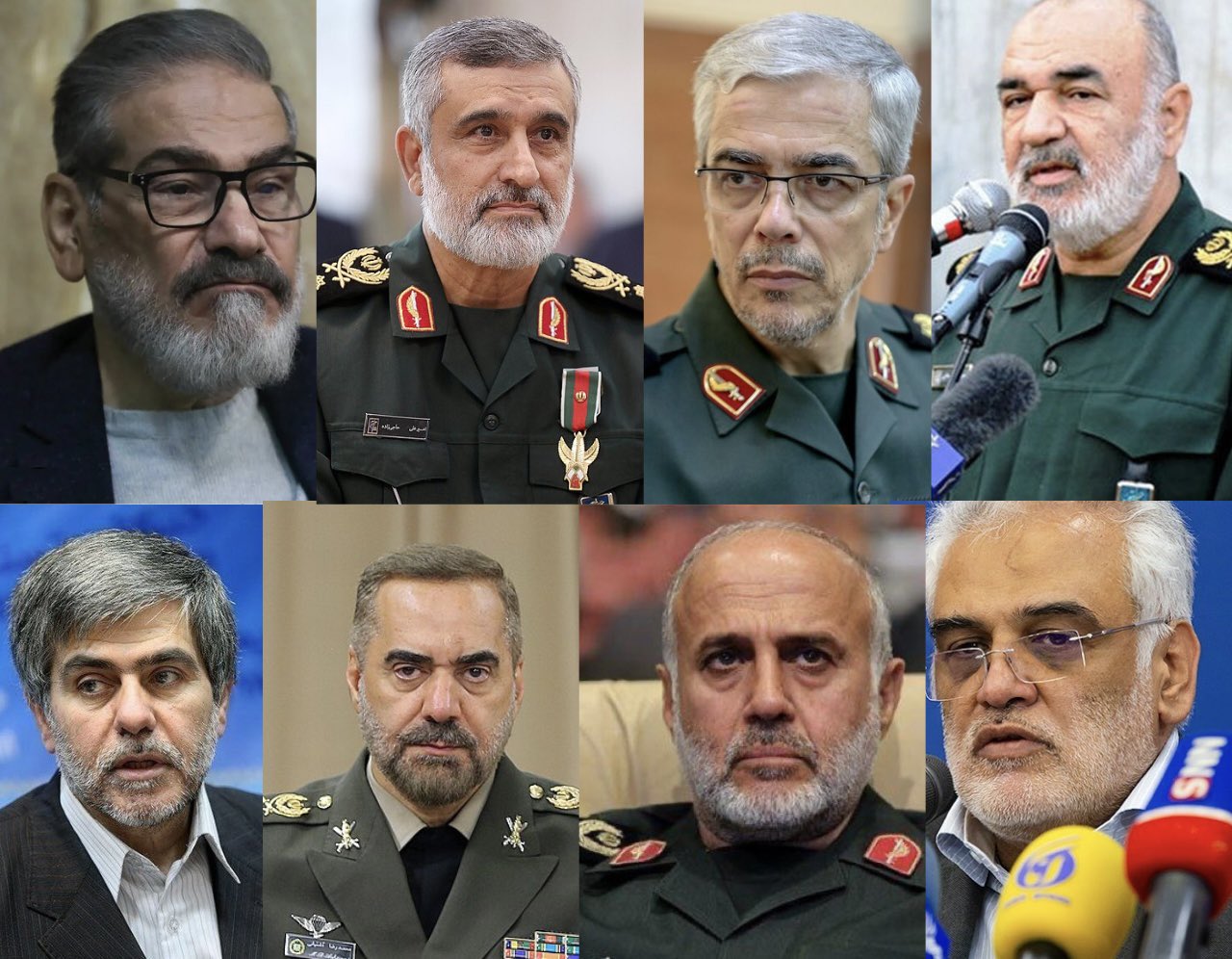
Barran Press
Despite nine years of Houthi rule over 11 Yemeni governorates, following their takeover of the capital Sana'a, and their coup against the state in late 2014, a chasm remains between the group and Yemeni society.
The Houthis have failed to integrate into Yemeni society, nor has the Yemeni society embraced them. The people have struggled to coexist with the Houthis' impulsiveness, cruelty, and strange behavior, as well as the actions of their supervisors and those who control their authority.
Those living in Sana'a or its surrounding countryside feel that the Houthi model of governance and control is unlike anything Yemenis have experienced in millennia, regardless of the ideologies and backgrounds of their past rulers.
This feeling is amplified by the Houthis' manic behavior, their constant judgment of society, and their relentless division of the population into "believers, hypocrites, and collaborators."
The Triple racialism
To unravel this complex issue and answer the questions surrounding it, journalist and researcher Adnan Al-Jabarni argues that it's crucial to understand the Houthis' "ideological, psychological, and mental makeup, or the system that shapes their direction and controls their major decisions."
Al-Jabarni believes that "three racialisms shape the thinking of the Houthi leadership. First: the racialism of lineage." He argues that most of the group's leaders "are Hashimites who believe they were created as superior beings, distinct from ordinary people and that they are the rightful rulers."
Second, "the racialism of regionality (Saada); the Hashimites of Saada, and those who have joined them or studied with them early on, are the ones ruling today and controlling the lives of people in Sana'a and its surroundings. No leader from outside this system has taken the lead in the past ten years," according to Al-Jabarni .
Third, according to researcher Al-Jabarni , "the racialism of sectarian belief. They are haunted by the Iranian model, and most of them have been trained by Iranians or have visited Tehran to receive military or sectarian mobilization training." He therefore argues that they are "tied to the Iranian project and expansion in the region, which is their priority, engaging in continuous wars to overthrow the opponents of the Supreme Leader's revolution."
Hashimites and the Houthi Horse
According to Al-Jabarni , "the Hashimites are the backbone and the vital organ of the Houthis." He believes that "they found in the Houthis the horse that carried them back to power, and they rallied behind him, forming a closed circle based on lineage, united by their claim of superiority, the right to rule, and their preference over other people, believing that God created them and chose them to lead the Yemenis."
Therefore, he argues that they are "not interested in improving their approach to please the people or serve society; they feel, based on the psychological makeup they were raised with and through which they jumped to power, that their goal is to confront arrogance, engage in battles of reclaiming and entitlement on the level of Yemen and the region, as a liberation project linked to the Iranians."
He adds: "Therefore, when people talk about their empty stomachs and demand salaries, they are seen by the group as materialistic, ignorant, and hypocritical, and their demands are interpreted as hatred or driven by collaboration and hypocrisy."
Al-Jabarni explains this by factors of existence, upbringing, education, and belief, as they are "from families that are materially secure according to the law of Khums (20% of the country's wealth), and they were raised with a sense of superiority that prevents them from connecting with people except when they need them as fighters or loyal followers who repeat their words and compete with their peers to be recognized as ideal followers."
Fragile alliances
The Houthis' exclusionary tendencies and distrust of everyone are reflected in their fragile alliances. As journalist and researcher Adnan Al-Jabarni points out, the alliances forged by the Houthis in 2014 during their takeover of Sana'a, whether with figures like Ali Saleh and his party, or with politicians and activists from leftist, independent, or tribal backgrounds, have largely crumbled. Al-Jabarni estimates that 75% of these alliances have dissolved, with former allies now opposing the Houthis.
He attributes this to the Houthis' "racism, exclusionary tendencies, and the difficulty of integrating into their existing structure and motivations." Even those who remain with the Houthis, he argues, have chosen to stay in the shadows or accept marginal roles for various reasons.
In August 2022, Sadeq Abu Ras, the head of the General People's Congress, the Houthis' governing partner in Sana'a, declared that a parallel government was running affairs in their controlled areas, while the publicly recognized government was merely a facade. In his speech commemorating the party's founding, he stated: "Nations are not built through nighttime meetings or gatherings in basements but through transparency."
Saada: The Center of Everything
It's striking that Houthis from Saada province have monopolized all top positions in the state, across all institutions, including non-Hashimites who believe in the "lineage project."
Looking at the list of names and positions, it's rare to find a Houthi from Saada holding a position lower than a general manager. In practice, they are the primary decision-makers in the institutions they occupy, and all are above criticism or accountability, regardless of their mistakes or crimes.
For example, when Houthi security forces detonated the homes of citizens in the city of Rada'a in April 2022, killing their occupants, no criticism was directed at Abdulkarim al-Houthi, the Interior Minister in the internationally unrecognized Houthi government, as he is the brother of the group's leader and hails from Saada. Similarly, the Deputy Minister, Ali Hussein al-Houthi, was also spared criticism, as he is the nephew of the group's leader and its de facto founder.
A Model of Monopoly
The Interior Ministry and the security sector in general are the most prominent examples of the monopoly of lineage and region. The sector has become a private domain for Hashimites from Saada province, specifically those from the Dhahyan region, and their "supporters."
This report reveals the names and positions of 26 Hashimites from Saada (listed in the accompanying tables) who exclusively manage the Interior Ministry and all its sectors, departments, and various security units, including 8 who oversee security administrations in 8 governorates under Houthi control.
In addition, 5 other individuals from the same lineage and region manage what is called the "Security and Intelligence Apparatus," which the Houthis established in August 2019 after dismantling the National Security and Political Security agencies. This apparatus serves as a private security agency for the Houthis, aimed at targeting Yemeni society and confronting any "potential threats" against them.





